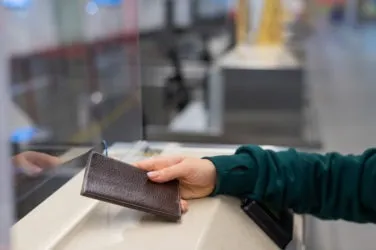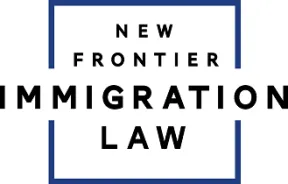
Yes, in some cases, you can appeal a permanent immigration bar decision. Per INA Sec. 212(a)(9)(C)(ii), an immigrant may overcome a permanent bar by remaining outside the U.S. for at least ten years and then filing Form I-212 to request readmission to the U.S.
Exceptions may also be permitted for an alien filing as a self-petitioner under the Violence Against Women Act (VAWA) if the person is in danger outside the U.S. No ten-year waiting period is required when a self-petitioner is filing under VAWA.
What is the Permanent Bar?
The Permanent Bar refers to a provision under U.S. immigration law that imposes a lifetime ban on individuals who have been unlawfully present in the country for more than one year and subsequently leave. This bar applies to individuals who attempt to reenter the U.S. without proper authorization. It is important to understand the implications of the Permanent Bar before considering any appeals or legal actions.
For a free case review , call
Understanding a Permanent Bar Decision
Although labeled “permanent,” a permanent bar doesn’t always mean forever. In many cases, a deported person can wait ten or more years and reapply for entry to the U.S. Their request must include a Form I-212, Application for Permission to Reapply for Admission into the United States After Deportation or Removal.
Reasons for a Permanent Bar Decision
Under INA Sec. 212(a)(9)(C)(i)(I), a permanent bar may be issued to an alien who has been in the United States unlawfully for more than one year and is subject to deportation. It also includes persons who try to reenter the U.S. unlawfully after removal.
Unlawful presence can accrue over one or more periods that exceed one year. For example, if an immigrant spent six months in the U.S. illegally, left the country for a time, and then came back for another six months, they will have reached the one-year unlawful presence threshold. The permanent bar goes into effect the next time the alien leaves the U.S.
Form I-212, Application for Permission to Reapply for Admission into the United States After Deportation or Removal
The decision of whether to grant a waiver lies on immigration officials. For that reason, it is vital to complete Form I-212 as thoroughly as possible. Officials will evaluate all supporting documentation, including items on this partial list:
- The reason for the original deportation
- The number of immigration and other U.S. law violations (or displays of willful disregard for laws)
- Whether the applicant has close familial ties in the U.S.
- Whether the alien’s absence has created hardship for U.S. family members
- Evidence of rehabilitation and respect for laws
- Evidence of good moral character
- Evidence of ability to maintain responsibilities for family
- Eligibility for a waiver under Form I-601 (if necessary) and Form I-212
- Desire to obtain legal citizenship
- Potential to obtain and maintain authorized legal employment
It is important to note that Form I-212 is a waiver request. It is not a visa application. If Form I-212 is approved, the applicant can then file the request for a visa. Failure to abide by the filing requirements of Form I-212 may result in a permanent bar with no possibility for appeal. You can only file the waiver request from outside the U.S.
Our immigration lawyers
How Long Does an I-212 Waiver Take to Process?
According to USCIS, the current median processing time for waivers such as Form I-212 is 6.7 months.
You can check the status of all requests using the USCIS online case status tool. The tool allows you to track the status of your immigration requests and offers tools for updating your address and other information that may change during the waiting period.
You will need your case receipt number to check the status of your request. This number is a 13-character (three letters followed by ten numbers) unique identifier that USCIS provides for each document they receive.
Filing Costs for Form I-212
Filing Form I-212 currently costs $930. Filing costs may change, so check the USCIS website before filing. If you want to pay by credit card, you must complete Form G-1450, Authorization for Credit Card Transactions.
If you pay using a personal check, cashier’s check, or money order, it should be payable to the “U.S. Department of Homeland Security.” Before submitting any forms, you should use the USCIS fee calculator to determine all applicable fees. All payments are non-refundable.
Complete a
Free Case Evaluation
Form now
An Immigration Attorney Can Help
It is normal to feel confused trying to sort through all the information necessary to deal with immigration. Our team at New Frontier Immigration Law is dedicated to making the immigration process as easy as possible for applicants.
If you need help, an immigration lawyer might benefit you greatly. Attorney Hillary Walsh has more than ten years of experience practicing immigration law. She and our other attorneys have helped many immigrants achieve lawful permanent resident status, and we would be honored to help you do the same. Contact us at New Frontier Immigration Law to discuss the many ways we can help.





